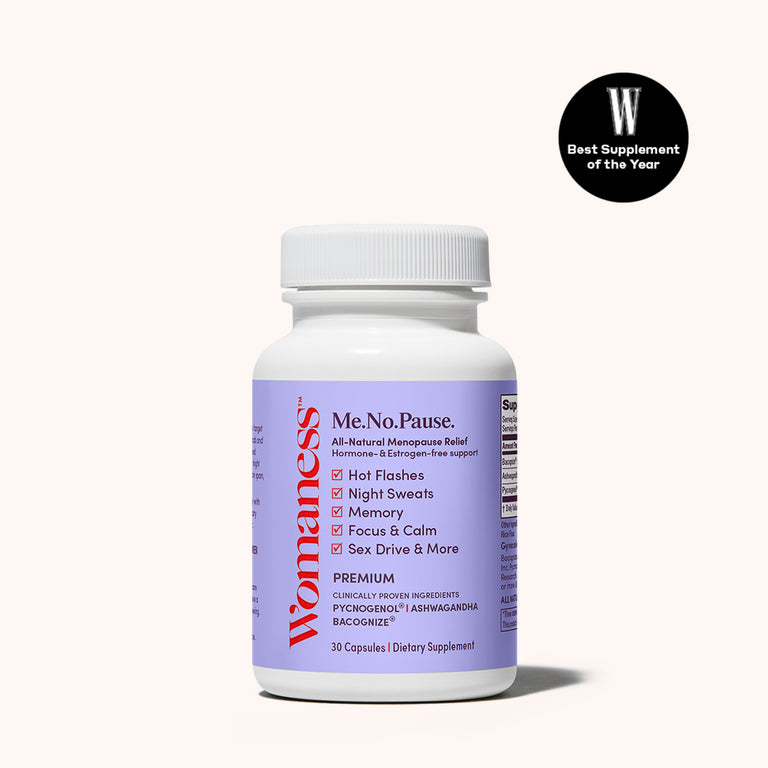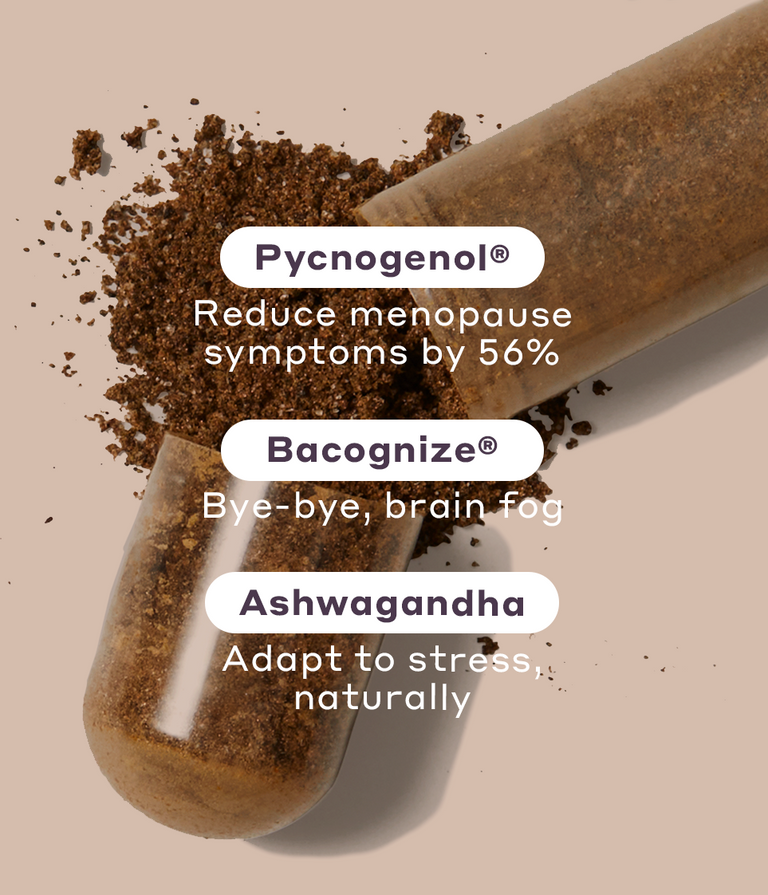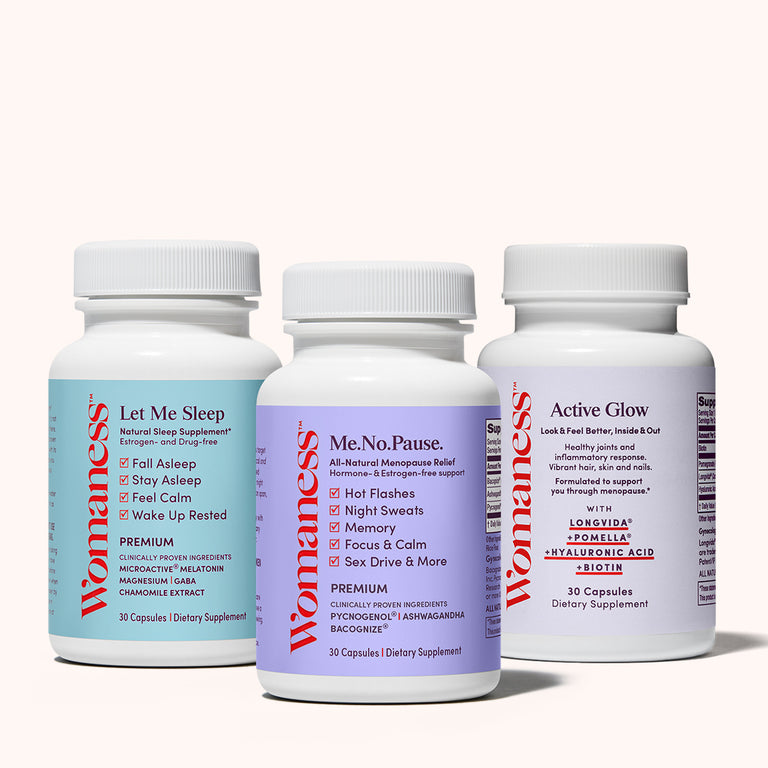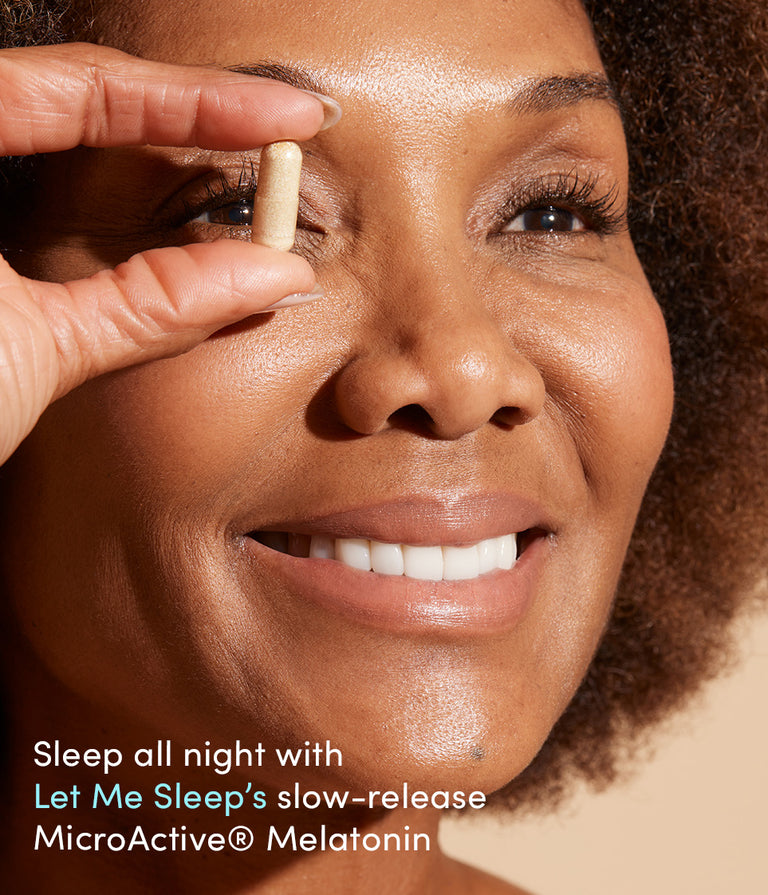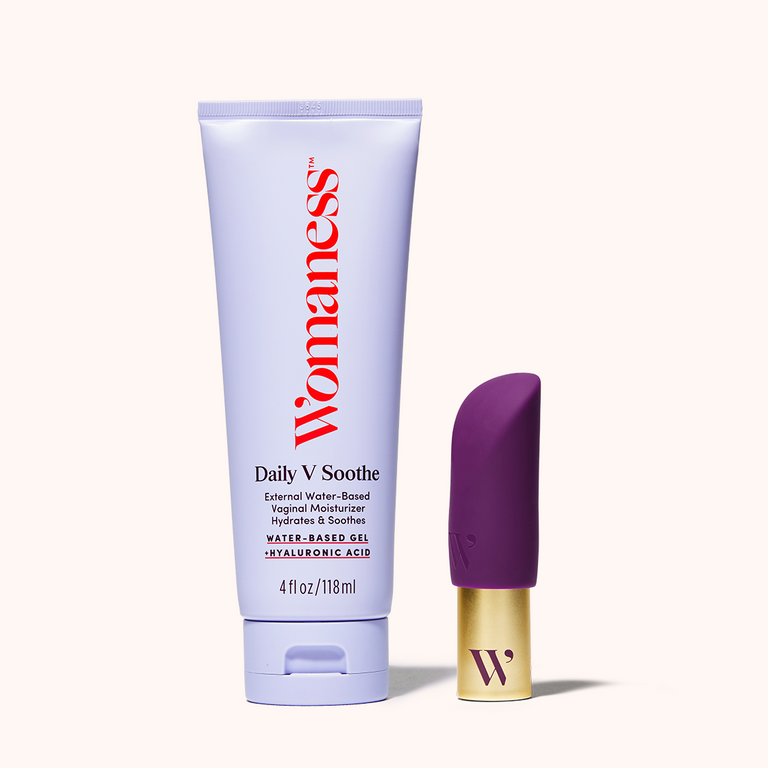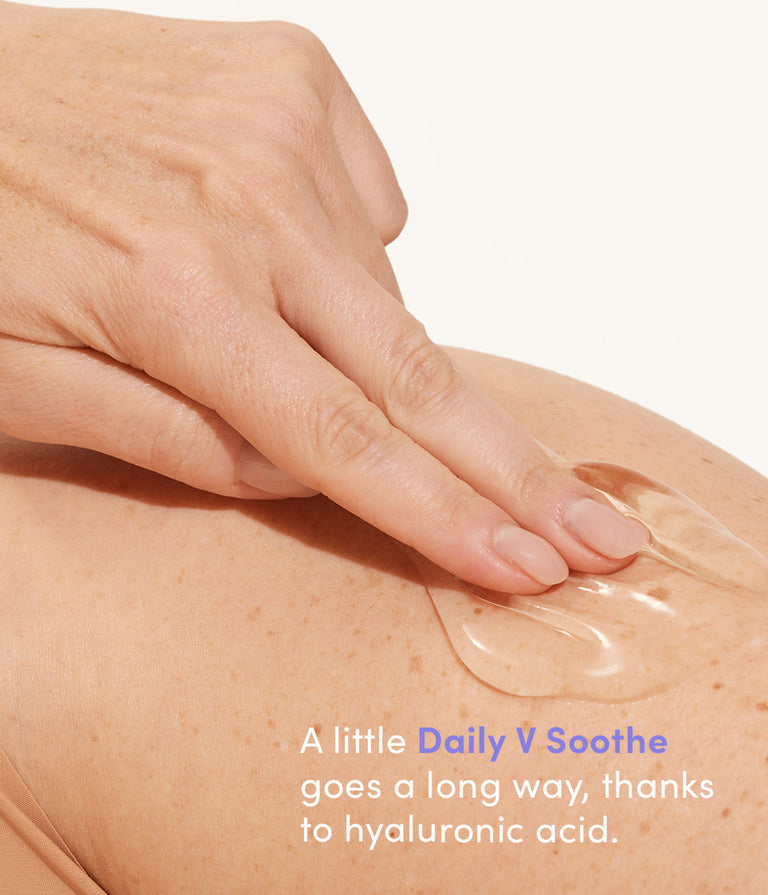By: Womaness Editors 3-Minute Read
Ashwa-whatta? This buzzy ingredient might seem new age, but in reality it’s a tried and tested traditional remedy for everything from stress to inflammation and even vaginal dryness. So if adaptogens and Ayurveda have you scratching your head, we’re here to demystify this ancient medicine, detail benefits of ashwagandha for menopause, and help shed some light on why it might be the herb for you.
It’s All Happening
Menopause is not a one-trick pony. While hot flashes might be the first symptom that pops to mind, there’s a host of other changes going on that you could experience during this period. As your estrogen levels lower, often inconsistently, other things are shifting. Your ability to concentrate and focus on tasks might evaporate, or sleep might begin to evade you. Below deck, your sex drive could be different too, thanks to a dwindling libido paired with vaginal dryness. It’s no wonder you’re not feeling like your usual self, but the truth is, this doesn’t have to be your new normal. Thanks to clinically proven natural remedies, you can target all of these issues in one fell swoop when considering ashwagandha for menopause.
How Ashwagandha Can Help
Ashwagandha is an Ayurvedic all-rounder, known as an adaptogen with nervine properties, meaning it is intended to nourish and support the central nervous system. If we break that down a little further, Ayurvedic medicine is one of the oldest holistic healing methodologies, which aims to create a balance between mind, body, and spirit. But as modern studies have now shown, many of the herbs used in this practice also have impressive clinical results.
Often referred to as Indian ginseng, ashwagandha is probably the most well-known example. This incredible plant, Withania somnifera, has also been shown to significantly reduce inflammation, which is responsible for most age-related diseases. Traditionally it was used to reduce fatigue and anxiety, and we now understand this is due to its ability to substantially reduce cortisol levels. This stress hormone is responsible for our fight-or-flight response, and when we’re feeling strung out our cortisol levels tend to skyrocket.
Similarly this cortisol-reducing effect can help with the brain fog and a general lack of focus that go hand-in-hand with menopause. If you’re finding that you’re more forgetful than usual, it’s not just you! Sleeplessness can also be an unwanted side effect, meaning you’re missing out on the beauty sleep you so crave. Ashwagandha could give your central nervous system the support it needs at this time, because we know you don’t plan to slow down anytime soon.
If you’re more concerned about the nocturnal playtime you’re missing out on, there’s good news on that front too. Studies show that ashwagandha can have a positive effect on sexual function in women, including increased vaginal lubrication, desire, and arousal. Sounds good to us!
Look For It In...
If you’re keen to stay unstoppable, a one-and-done supplement that tackles menopause’s toughest symptoms is the way to go. We formulated Me.No.Pause. for that exact purpose, using ingredients like ashwagandha that can help with hot flashes, night sweats, vaginal dryness, memory and mood. In short: all-natural, hormone-free, clinically tested support that 84% of primary care physicians would recommend.*
*Based on a third-party review with 54 physicians specializing in menopause treatments.
Keep On Keepin' On
Looking to find more natural and easy solutions to your symptoms? Check out our menopause must-haves for women on the go.
More Health & Wellness
Ingredient Spotlight: Hyaluronic Acid
Say Hello To Fountain of Glow
Ingredient Spotlight: Curcumin


